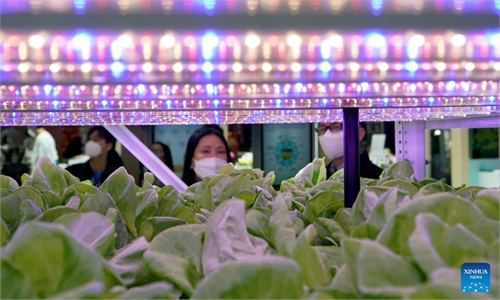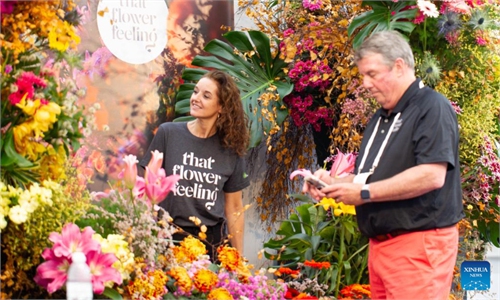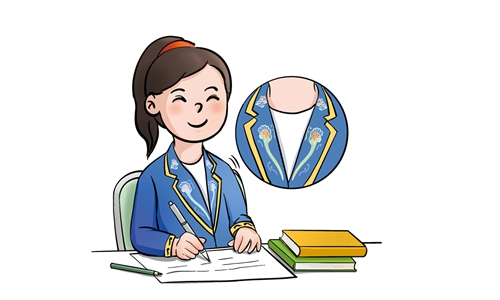ARTS / CULTURE & LEISURE
Chinese craftswoman helps Lisu ethnic village turn local embroidery into lucrative international business
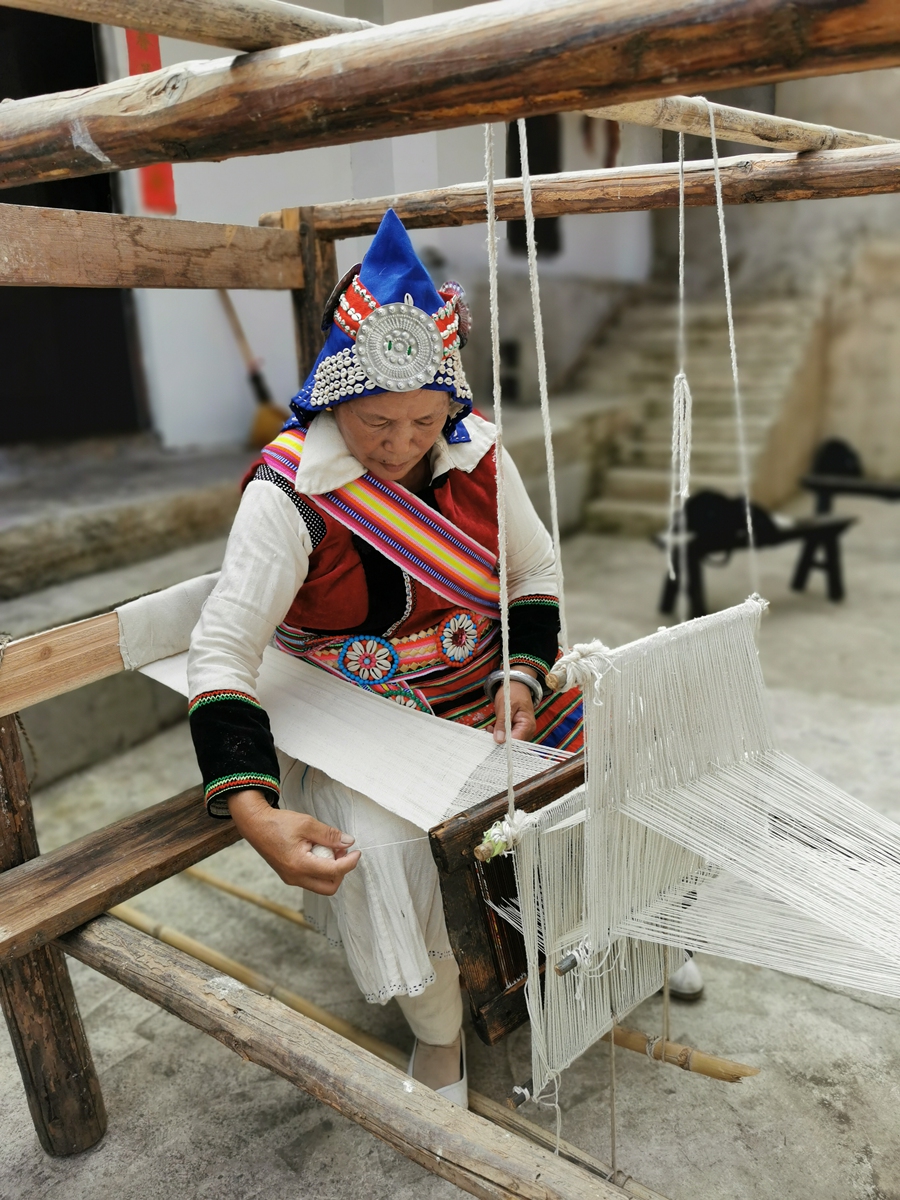
A Lisu ethnic craftswoman makes traditional fabric. Photo: Courtesy of Li Changping
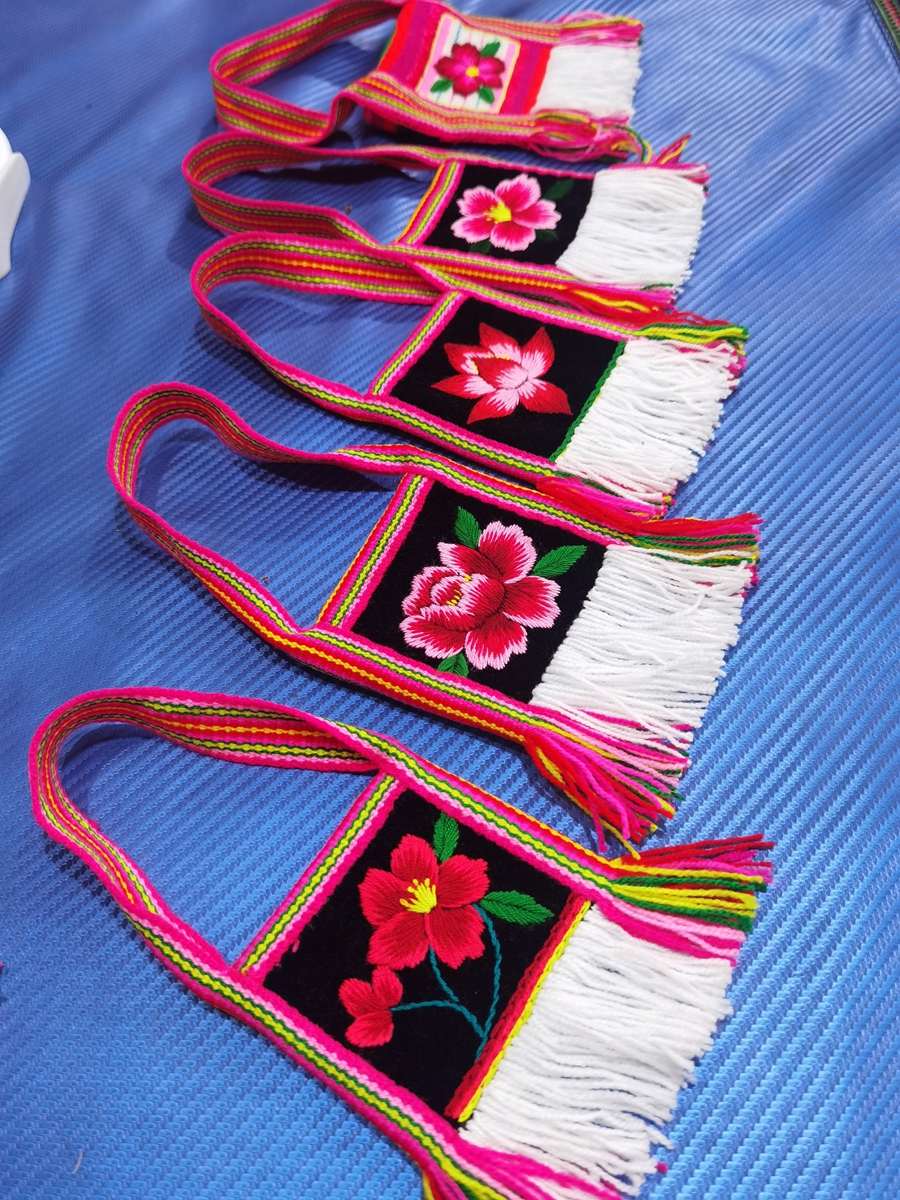
Hanging decoration made with Lisu ethnic embroidery Photo: Courtesy of Li Changping
Who would have thought 20 years ago that the tweed textiles made by the Lisu ethnic minority in China, which often carries similar aesthetics of Chanel haute couture, would become a luxury item aimed at taking on the international Amazon marketplace. The "Lisu tweed" has indeed been able to make a name for itself in international markets through the efforts of Li Changping, who has been using her entrepreneurial skills to market this ethnic culture heritage and alleviate poverty in Southwest China's Yunnan Province.An opportunity to help
Bringing an outfit featuring a handmade embroidered magpie, a quintessential design of Lisu ethnic clothing during the 1950s, the textile designer and entrepreneur is geared up for the 2022 Kunming Fashion Week currently underway in Kunming, Yunnan Province.
The 48-year-old woman works in Weixi county in Yunnan's Diqing Tibetan Autonomous Prefecture, better known as "Heaven on Earth" Shangri-la.
Although she is now taking on the fashion world, around two decades ago she was nowhere near as confident about this Chinese Intangible Cultural Heritage.
"When I went there in 1998 the county was mired in poverty. Even though Lisu sewing had carried on in the deep mountains for generations, for locals it was just a daily part of life as they did not see the cultural and monetary potential of this traditional art," Li told the Global Times.
After putting out some entrepreneurial feelers, Li decided to help locals turn this tradition into a means to improve their living standards.
"I dedicated myself to helping them make this business a reality," so that the "fruits of their labor will go back into their pockets," she emphasized.
Over the years, her dream gradually came true.
In 2000, Li established her Lisu embroidery company Kang'en Homeland. It began as a channel for selling local embroidery items bought from inheritors of the tradition hidden in the deep mountains, but then expanded beyond that after the entrepreneur discovered that bringing all the skilled handicraftswomen together in one workshop improved productivity and helped resolve employment in the 800-household region.
In May 2020, in conjunction with the Chinese government's poverty-alleviation efforts such as housing subsidies, the county was finally able to put its "poverty-stricken" label behind it. Throughout this time, Li's "poverty alleviation through sewing" program was a driving force that helped establish a complete production chain for local Lisu embroidery and, most importantly, turned housewives into the breadwinners of their families.
"Most of the people who know this skill in the area are women. With the men heading to major cities for work, these women were left at home with very little to support themselves. The workshop allows them to make money from their own products."
Over the past 22 years, Li's project has grown from just herself to more than 40 craftswomen aged 18 to 70 years old.
These women handle positions from twisting yarn to sales and marketing, and Li has also been hiring more tech-fluent Gen Z employees to launch streaming promotions.
"We feel lucky that our life is getting better and better. This is a present provided by our culture," Li said.
Belonging to the world
Matching highly contrasting red-green fabric in a single outfit decorated with patterns inspired by nature, Lisu textile symbolizes China's ethnic cultural diversity, Li said.
"Our ethnic group has a long history of migration. According to different localized traditions and environments, our fashion can go from thick woollen designs to lightweight fabrics with various patterns," Li said.
As a designer who was drawn to the "spirituality' of Lisu embroidery at first sight, Li told the Global Times that the ethnic group prefers vibrant colors, flowers and birds, which show the Lisu people's optimism and romantic longing for life.
Over the past five years, Li has showcased her works at several international exhibitions, where she has intrigued buyers from Germany and France who wanted the clothing as "a piece of culture to collect."
"I will always remember when a French woman told me about the modern aesthetics of Lisu textiles. I was startled to I realize our cultural legacy does not belong to history, but the future."
Li is fond of Lisu tweed, a traditional fabric from the ethnic group that originated more than 100 years ago, which she compares to Chanel tweed.
"I designed a suit made of our tweed, and added fur collars and embroidery that originated from our culture. This shows what belongs to a nation also belongs to the world," Li noted.
Li is now juggling multiple tasks at once - streaming is her latest effort.
And even now she is looking on to greater heights.
"We are working on launching new designs that suit Westerners' tastes. Making a name for ourselves on Amazon is our next goal."
